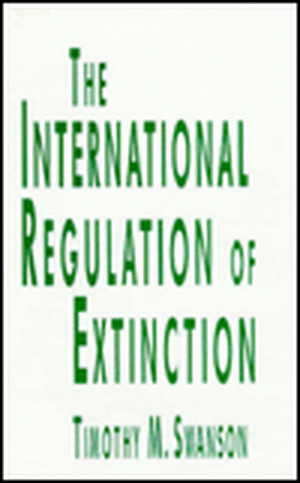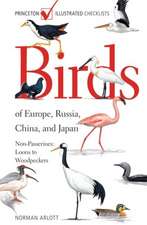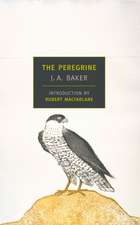The International Regulation of Extinction
Autor Timothy M. Swanson, Penny Weissen Limba Engleză Hardback – 30 iun 1994
Preț: 524.97 lei
Preț vechi: 681.78 lei
-23% Nou
Puncte Express: 787
Preț estimativ în valută:
100.46€ • 109.09$ • 84.39£
100.46€ • 109.09$ • 84.39£
Carte tipărită la comandă
Livrare economică 22 aprilie-06 mai
Preluare comenzi: 021 569.72.76
Specificații
ISBN-13: 9780814779927
ISBN-10: 0814779921
Pagini: 264
Dimensiuni: 148 x 225 x 30 mm
Greutate: 0.47 kg
Ediția:New.
Editura: NEW YORK UNIVERSITY PRESS
ISBN-10: 0814779921
Pagini: 264
Dimensiuni: 148 x 225 x 30 mm
Greutate: 0.47 kg
Ediția:New.
Editura: NEW YORK UNIVERSITY PRESS
Textul de pe ultima copertă
During the summer of 1992, the United Nations Conference on Environment and Development in Rio de Janeiro was hailed as a watershed moment in the ecology movement. Over 100 nations signed a new international treaty intended to conserve biological diversity. Yet, every day, species - many not even discovered - are driven into extinction and the ecological crisis remains a pressing global problem. Stressing the need to build bridges between the scientific community and international policymakers, Timothy Swanson here develops a new theory of the interplay between human society and the biological world. Biodiversity regulation, he argues, must focus specifically on the regulation of the global economic forces driving species into extinction. As the global development process becomes increasingly sophisticated, the specter of a homogenized biosphere looms large. Yet, while biological diversity is responsible for a host of global benefits, it confers few tangible gains upon individual nations comparable to the immediate advantages of exploiting these same natural resources. The same economic rationale that drives farmers to grow coca leaf instead of grain compels countries to exploit natural resources rather than conserve them. In order to stave off the decline of biological diversity, Swanson proposes the creation of specific policies that will internalize the benefits of biodiversity on a national level.







